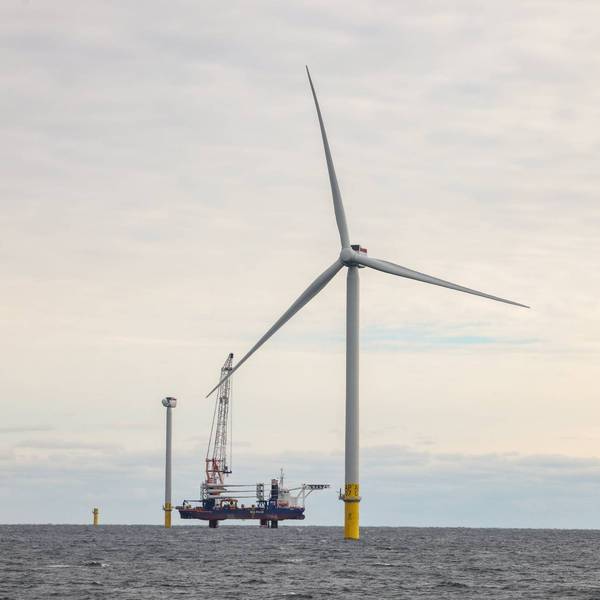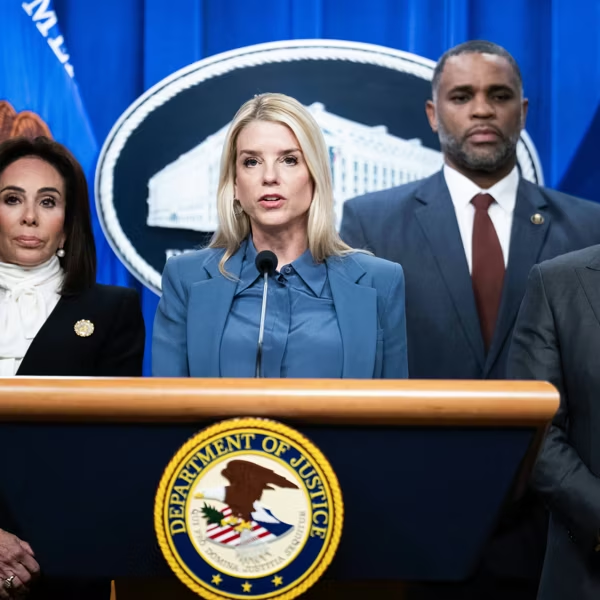The Trump administration unveiled its draft five-year plan for offshore drilling this week to replace the Obama administration plan that went into effect last year. Trump is proposing to open to oil and gas development vast untouched areas of coastal waters including the Atlantic and the eastern Gulf of Mexico -- part of his administration's stated quest to make the U.S. the world's "strongest energy superpower."
How vast is the area targeted for drilling? While the current federal offshore drilling program crafted by the Obama administration bars leasing to private drilling companies in 94 percent of the outer continental shelf, the Trump plan would open more than 90 percent of the OCS to potential future oil and gas development. It proposes 19 lease sales off Alaska, 12 in the Gulf of Mexico, nine in the Atlantic (three each for the Mid- and South Atlantic, two for the North Atlantic, and one for the Straits of Florida), and seven in the Pacific.
Among the areas now being considered for drilling are the waters off the coasts of Virginia, North Carolina and South Carolina -- even though governors of those states have expressed opposition amid widespread concern about the impacts in coastal communities.
As the Southern Environmental Law Center pointed out:
The Trump administration's proposal defies formal requests from North Carolina Governor Roy Cooper and Virginia Governor Terry McAuliffe that their states be omitted from the five-year plan. South Carolina Governor Henry McMaster and Virginia Governor-elect Ralph Northam have also voiced opposition to seismic testing and offshore drilling.
The administration of North Carolina Gov. Roy Cooper submitted formal comments to federal regulators in July opposing offshore seismic testing for oil and gas reserves, the first step toward drilling. At that time Cooper also stated his opposition to offshore drilling, saying that it would pose unacceptable risks to the economy, environment, and coastal communities.
Then in August, Gov. Terry McAuliffe of Virginia wrote to the Bureau of Ocean Energy Management (BOEM) asking that his state be excluded from the five-year drilling plan. And though he didn't submit formal comments, Gov. Henry McMaster of South Carolina announced his opposition last summer to both offshore seismic testing and drilling.
Cooper and McAuliffe are Democrats while McMaster is a pro-Trump Republican. Opposition to offshore drilling has been particularly strong in the Carolinas, where more than 50 coastal communities have passed resolutions opposing seismic testing and/or offshore drilling.
Governors ready for a fight
Listening to governors when drawing up a five-year offshore drilling plan is not merely a matter of courtesy: Under the Outer Continental Shelf Lands Act, it's the law.
The section of the act laying out the principles that are supposed to guide the federal offshore drilling program says that granting of leases in the OCS shall be based on consideration of eight factors, including
laws, goals, and policies of affected States which have been specifically identified by the Governors of such States as relevant matters for the Secretary's consideration ... .
The Obama administration's five-year plan for the 2017-2022 period initially proposed leases in the waters off Virginia, North Carolina and South Carolina, where the governors at the time specifically requested inclusion in the plan. But it excluded states like Florida where political leaders strongly oppose drilling. The Southeastern states were eventually dropped from the final plan after the public comment process revealed widespread opposition in the coastal communities that would be most directly affected.
However, the Trump administration -- which has received generous financial support from the fossil-fuel industry -- was eager to scrap the Obama plan for a more aggressive one.
Back in early April, Interior Secretary Ryan Zinke announced that President Trump would issue an executive order amending the plan by expanding offshore drilling to areas now off limits, including the Atlantic. Zinke made the announcement at a closed-door meeting of the National Ocean Industries Association, an influential lobbying group that represents the offshore drilling industry. Trump signed the order on April 28.
Then in July, the administration published a notice in the Federal Register seeking information from coastal and other stakeholders to develop a new five-year plan. That kicked off the process that led to this week's proposal. There will now be another multi-year comment process leading to a final plan. At the same time, the administration is seeking to roll back regulations adopted in the wake of the 2010 BP Deepwater Horizon disaster off the Louisiana coast.
In unveiling the new proposal, Zinke acknowledged that some areas included at the outset might not in fact be suitable for oil and gas development. "Today's announcement lays out the options that are on the table and starts a lengthy and robust public comment period," he said. "Just like with mining, not all areas are appropriate for offshore drilling, and we will take that into consideration in the coming weeks."
Since Zinke's announcement, a number of governors have said that they intend to fight to keep drilling rigs away from their coasts. For example, Gov. Cooper released a statement saying that his administration would "pursue every option to prevent oil drilling near North Carolina's beaches, coastal communities, and fishing waters."
Meanwhile, Gov. Rick Scott (R) of Florida said he has asked to "immediately" meet with Zinke to discuss his concerns about the plan and what he called "the crucial need to remove Florida from consideration."




